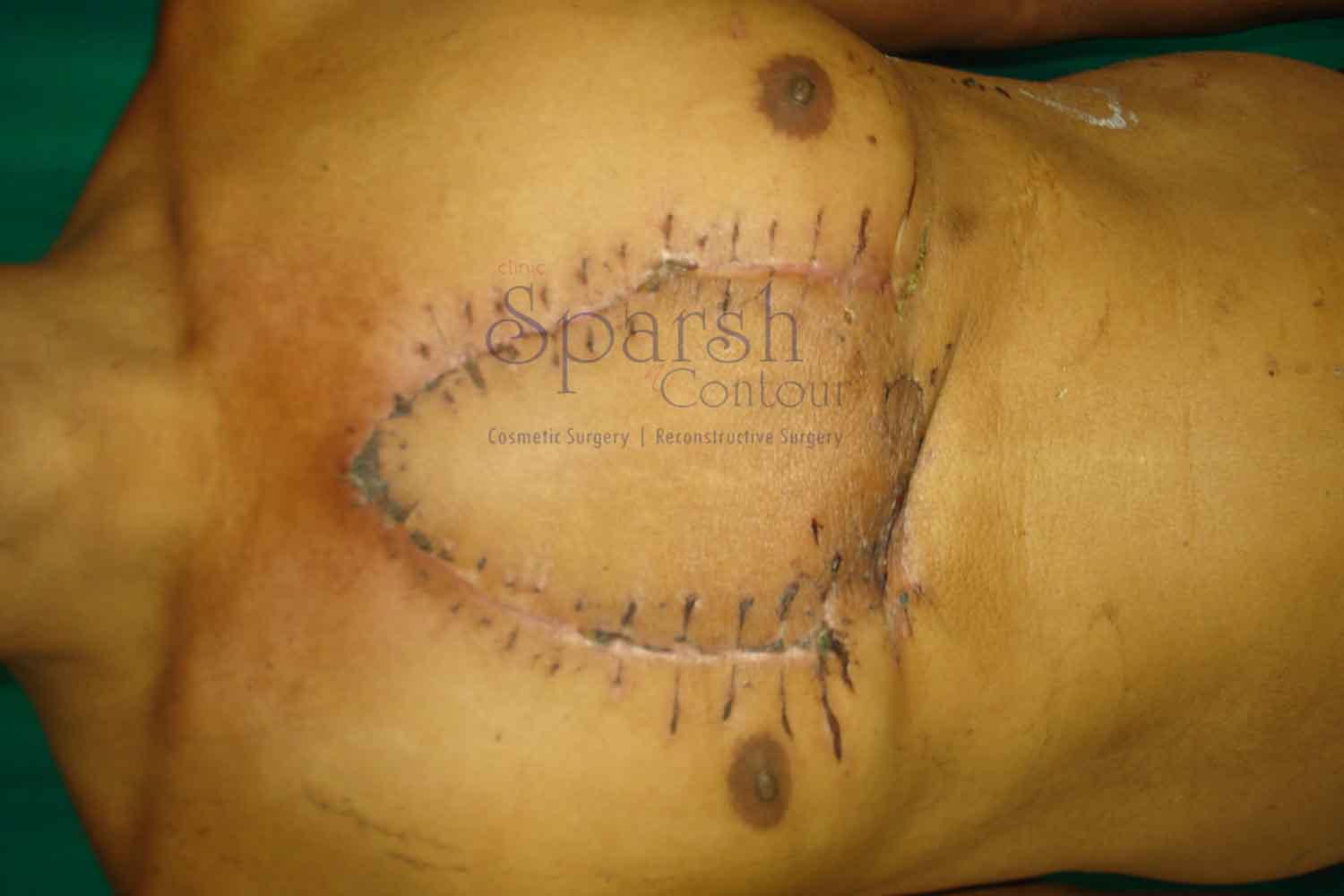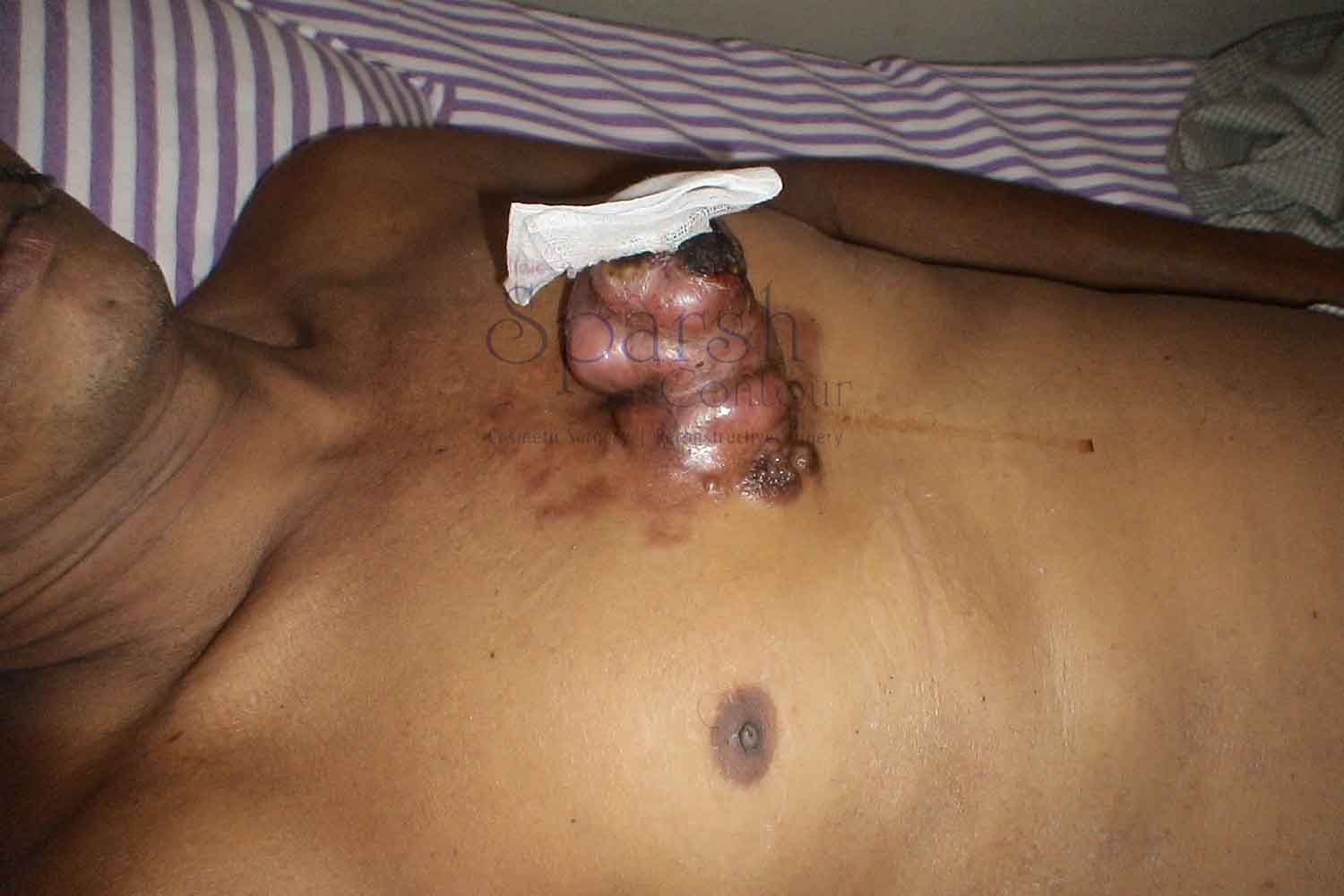Cancer Reconstruction
Chest and Abdominal wall Reconstruction
Cancer Chest and Abdominal Wall Reconstruction Surgery is a specialized procedure performed by plastic surgeons to restore and reconstruct the chest and abdominal areas following cancer treatment. This surgery is often necessary after the removal of tumors from these regions, which can leave significant gaps or defects in the skin, muscle, or tissue..
The goal of this reconstruction surgery is to repair and rebuild the affected areas to improve both appearance and function. This involves several techniques to address the damage caused by cancer treatments such as surgery, radiation, or chemotherapy. The plastic surgeon may use skin grafts, where healthy skin from another part of the body is used to cover the defect, or tissue flaps, where a section of tissue with its blood supply is moved to the affected area. In some cases, implants or prosthetics may be used to restore the volume and shape of the chest or abdominal wall.
Recovery from this surgery can involve a multi-faceted approach including wound care, physical therapy, and follow-up care to ensure proper healing. The goal is to not only achieve a natural and aesthetically pleasing result but also to restore the functionality and strength of the affected areas, helping the patient regain their ability to perform daily activities and improve their overall quality of life.
The goal of this reconstruction surgery is to repair and rebuild the affected areas to improve both appearance and function. This involves several techniques to address the damage caused by cancer treatments such as surgery, radiation, or chemotherapy. The plastic surgeon may use skin grafts, where healthy skin from another part of the body is used to cover the defect, or tissue flaps, where a section of tissue with its blood supply is moved to the affected area. In some cases, implants or prosthetics may be used to restore the volume and shape of the chest or abdominal wall.
Recovery from this surgery can involve a multi-faceted approach including wound care, physical therapy, and follow-up care to ensure proper healing. The goal is to not only achieve a natural and aesthetically pleasing result but also to restore the functionality and strength of the affected areas, helping the patient regain their ability to perform daily activities and improve their overall quality of life.
 After
After  Before
Before Drag
Cancer Reconstruction
Why might I need this surgery?
- You may need this surgery if cancer treatment involved removing parts of the chest or abdominal wall, resulting in significant defects or weaknesses.
- Reconstruction helps restore the normal structure and function of the chest or abdominal areas.
- The surgery improves both cosmetic appearance and quality of life.
our expert answers
frequently asked questions
How long does the surgery take?
The duration of the surgery varies depending on the extent of the reconstruction needed. It can range from a few hours to several hours, depending on the complexity of the procedure and the techniques used.
What is the recovery process like?
Recovery involves wound care, physical therapy, and regular follow-up appointments. You may experience swelling, bruising, and discomfort initially. Full recovery can take several weeks to months, depending on the extent of the surgery and your overall health.
Will I have a noticeable scar after the surgery?
Scarring is a normal part of the healing process. The appearance of scars will depend on the size and location of the incision. Your plastic surgeon will work to minimize scarring and ensure the best possible cosmetic outcome.
How long will the results of the surgery last?
The results are generally long-lasting, but maintaining a healthy lifestyle and following your surgeon's post-operative care instructions can help ensure the best outcome. The durability of the results can vary based on individual factors and the extent of the reconstruction.
Will I need additional treatments or follow-up surgeries?
Follow-up treatments may be required to monitor healing and address any issues that arise. Additional surgeries may be necessary for further refinement or correction, depending on your recovery and specific needs.
How can I prepare for this surgery?
Preparation involves discussing your medical history with your surgeon, undergoing pre-operative tests, and arranging for post-surgery care and support. Your surgeon will provide detailed instructions on how to prepare for the surgery and what to expect during recovery.
APPOINTMENT
